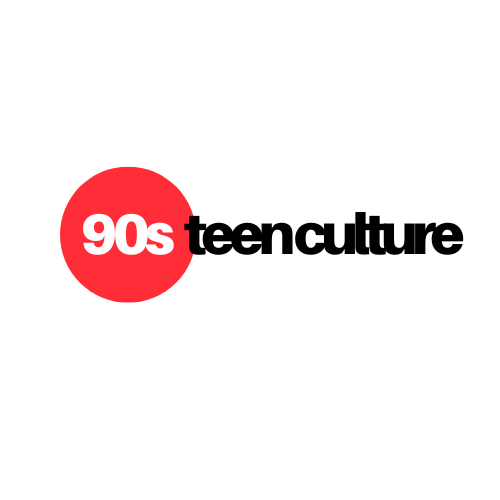Higher Education, Hard Lessons: Remembering Higher Learning 30 Years On



Thirty years. Three decades. That’s how long it’s been since John Singleton’s raw and unflinching drama, Higher Learning, first hit the big screen. Released in 1995, this isn’t a film about triumphant academic achievement or the carefree days of college life. Instead, it’s a powerful and often uncomfortable exploration of race, identity, and the simmering tensions that can erupt on a diverse college campus. Even three decades later, “Higher Learning” remains jarringly relevant, forcing us to grapple with issues that continue to plague our society.
If you were around in the mid-90s, you likely remember the buzz surrounding Singleton. Following his groundbreaking debut with Boyz n the Hood (1991) and the poignant Poetic Justice (1993), “Higher Learning” arrived with considerable anticipation. It didn't disappoint, even if it was far more divisive than his previous works. Unlike the more localized narratives of his earlier films, "Higher Learning" tackles the complexities of race relations on a larger stage – the microcosm of a fictional university called Columbus University.
The film follows three freshman students – Malik (Omar Epps), a track star grappling with his racial identity and the allure of Black Nationalist groups; Kristen (Kristy Swanson), a shy and naive white woman finding her voice amidst the campus’s diverse (and often hostile) environment; and Remy (Michael Rapaport), a lonely and troubled young man whose sense of alienation fuels a descent into neo-Nazism. These characters, and their interconnected journeys, are the heart of Higher Learning’s enduring power.
What's striking about the film, even today, is its unflinching portrayal of the complexities of racial dynamics. It doesn’t shy away from portraying the ugliness of prejudice and the deep wounds it inflicts. Malik’s struggle is particularly compelling. He's not simply defined by the color of his skin; he’s a complex individual torn between assimilation and embracing his Black heritage. His experiences highlight the pressure young Black men face to navigate a world that often places them in pre-defined boxes.
Kristen's journey is equally compelling. As she ventures outside the comfort of her predominantly white upbringing, she’s forced to confront her own prejudices and naiveté. She becomes a bridge between the often-polarized communities on campus, and her character arc is a testament to the power of empathy and understanding.
And then there's Remy, the tragic figure. His descent into hate is unsettling, but the film doesn't portray him as a simple caricature. It shows how isolation, insecurity, and the need for belonging can lead individuals down a dangerous path. His story serves as a chilling reminder of the insidious nature of extremism.
The brilliance of Higher Learning lies not in offering easy answers but in asking difficult questions. It challenges us to look beyond the surface, to acknowledge the uncomfortable truths about race, class, and privilege that permeate our society. It shines a light on the systemic issues that create these divides, forcing the audience to confront their own biases.
While Higher Learning isn't a perfect film, it's certainly a bold and important one. Some might criticize its somewhat melodramatic plotlines or its occasionally heavy-handed approach. But these elements, often viewed as flaws, arguably contribute to the film's lasting impact. The heightened drama serves as a powerful magnifying glass, amplifying the real-world tensions the movie explores.
Furthermore, the film benefits from a powerhouse ensemble cast. Epps delivers a nuanced and captivating performance as Malik, conveying the character’s internal struggles with sensitivity. Swanson showcases Kristen’s evolving consciousness with genuine vulnerability, and Rapaport is chillingly effective as Remy, depicting his descent into darkness with chilling authenticity. The supporting cast, including Ice Cube as the militant leader Fudge and Laurence Fishburne as the politically astute Professor Maurice Phipps, further enrich the film’s complex tapestry.
Looking back 30 years later, Higher Learning is a chilling reminder of how little some things have changed. The issues of racial division, identity politics, and the rise of extremism that the film so powerfully addresses remain deeply relevant in our contemporary world. Discussions about systemic racism, cultural appropriation, and the complexities of diversity continue to dominate our social and political landscapes. The film acts as a time capsule, highlighting the cyclical nature of these problems and underscoring the urgent need for dialogue and understanding.
In an era of increasing polarization, Higher Learning remains a crucial touchstone, reminding us of the importance of critical thinking and open-mindedness. It’s a film that demands to be discussed, debated, and analyzed. It's a film that, even though three decades old, continues to hold a mirror up to our society, challenging us to be better, to do better.
The 30th anniversary of Higher Learning is not just an occasion for nostalgia, but a moment to reflect on its continued relevance. It’s a call to engage with the difficult issues it raises and to commit to building a more just and equitable future. The lessons of Columbus University, though presented on a fictional campus, are lessons we all need to learn. If Higher Learning teaches us anything, it’s that education extends far beyond the classroom and that true progress requires us to confront our own prejudices and work towards a world where everyone has the opportunity to learn, to grow, and to truly understand one another. So, as we mark this significant anniversary, let’s not just remember the film, but let’s also use it as a catalyst for meaningful conversations and positive change.